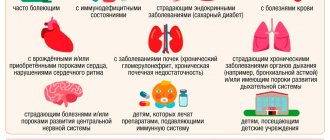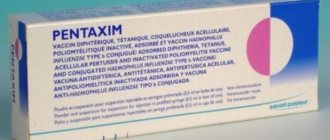Antibiotics are used for infectious diseases caused by bacteria. They either destroy pathogenic microorganisms (bactericidal drugs) or limit their proliferation (bacteriostatic antibiotics), leaving the immune system to fight the infection itself.
In order for antibiotics to be effective, you must follow certain rules for taking them.
Antibiotics are prescribed by the doctor
Only a specialist can choose the appropriate drug from the huge number of items produced by the pharmaceutical industry. When prescribing a medicine, the doctor takes into account the disease, age and condition of the patient, the presence of concomitant pathologies, and the side effects of the drug. And if the doctor prescribed you an antibiotic, you need to take it.
Today there are two extreme points of view regarding antibiotics. Some consider them an absolute evil and refuse treatment. Others, on the contrary, are ready to swallow antibiotics for any cold. Both are wrong.
Yes, indeed, this group of drugs is far from harmless, and while killing pathogenic microbes, they also destroy beneficial microflora. But in case of severe infections, you cannot do without them. By refusing to take the pills, you risk ending up in a hospital, where you will be given the same antibiotics, but by injection or through an IV, and in much larger doses.
Those who try to treat a runny nose with antibiotics (and this is a viral infection that antibiotics have no effect on) will not get rid of the disease, but they may suffer from the side effects of the drug.
Do I need to take an antibiotic for ARVI?
Antibiotics are NOT prescribed for the treatment of ARVI, as they are ineffective against viruses. However, if colds and flu are treated incorrectly, a bacterial infection can join the virus and cause complications (sinusitis, otitis media, pneumonia, etc.). In this case, taking antibiotics will become necessary. However, the doctor will not prescribe antibiotics in advance to prevent complications, since there is a risk of the addition of other microorganisms, and there will be a need to take another antibiotic.
Antibiotics must be taken strictly according to the schedule
Your doctor will tell you your dosage regimen. In addition, each drug has instructions that describe in detail when (morning, evening, before/after meals) and how many times a day the medicine should be taken. Antibiotics should be taken at the same time, and the intervals between doses should be equal. Usually the drug is taken 1-2-3-4 times a day, which means the intervals should be 24-12-8-6 hours. This is the period of time the pill works, then its effect ends, and if you miss the time of taking it, the bacteria will begin to multiply intensively, poisoning the body. In addition, microorganisms may develop resistance to this antibiotic.
Don't repeat at home
An antibiotic is a powerful medicine and should always be prescribed by a doctor. For more than two decades, many pharmacies, in an effort to increase revenue, freely sold prescription drugs, except for narcotic and psychotropic drugs. This led to the fact that many doctors forgot how to fill out prescription forms, writing prescriptions on pieces of paper without even stamping them. And patients bought antibacterial, also known as antimicrobial, drugs for self-medication. Control has only tightened in the last two years.
“Even before I started working at the Fantasy Children’s Clinic,” says pediatrician Victoria Alipova, “a child was brought to the appointment who complained of abdominal pain and bowel movements. The medical history showed that the boy had been treated with antibiotics 12 times over the past year for every cold, including ARVI, when such medications are useless. For the first time, the doctor prescribed an antibiotic, and then the child’s mother acted by analogy. It was enough to stop the drug, and the problem with the intestines would normalize. Children can take antimicrobials in the form of syrups or suspensions even from birth, but only according to indications determined by the doctor. Many doctors prescribe such medications for any reason.”
Antibiotics have many side effects. First of all, they destroy the intestinal microflora: diarrhea, vomiting, possible colitis, liver and kidney dysfunction, and allergies. In such cases, probiotics or other drugs that normalize the functions of the gastrointestinal tract are often prescribed in parallel. However, urologist Rinaz Kamaletdinov says that the clinical recommendations do not indicate that such drugs can stabilize the intestinal microflora against the background of antibacterial therapy. And in each case of illness, only a specialist can make a decision on the type of therapy:
“Treatment with antibiotics should be carried out by a doctor,” Dr. Kamaletdinov is sure. - Even if similar symptoms reappear, you should not take the pills left over from your previous illness. You can consult a doctor online or by phone. In urology, different types of antibiotics are used, most often fluoroquinolones, especially levofloxacin. It is often necessary to change the pharmacological group, dose, duration and schedule of administration. For example, a patient with bacterial prostatitis caused by Escherichia coli was given one type of antibiotic. Treatment requires 28 days, but symptoms returned in the 3rd week. It turned out that a second infection appeared in the body, and E. coli developed resistance to the drug. I had to additionally prescribe a drug of a different spectrum.”
You need to complete the full course of treatment
As a rule, if the antibiotic is effective, improvement occurs on the 3rd day of treatment. But this does not mean recovery. You should not interrupt the course, even if you feel much better. By stopping taking the medicine ahead of time, firstly, you will soon feel worse, since not all bacteria have been destroyed, and secondly, your bacteria will become resistant to this antibiotic and in the future it will no longer act on them. You will get the same result if, after feeling an improvement in your condition, you reduce the dose of the drug.
UZ "Mogilev City Emergency Hospital"
The discovery of the first antibiotic penicillin by Alexander Fleming back in 1928 changed the further course of history and the development of medicine. Penicillin saved the lives of many people during World War II. We have been using antibiotics for almost a century. At their peak, these drugs were a panacea for many diseases. At one time, it was antibiotics that allowed the development of surgical treatments and thanks to them, such high achievements in medicine as open heart surgery and chemotherapy are now possible. However, despite all the advances in technology and medicine, there is a real threat of returning to the Middle Ages, when people died from the simplest infections and diseases. The reason for this is the rapidly spreading antibiotic resistance (antibiotic resistance). It occurs when microorganisms develop/mutate in such a way that they can resist the drugs used to fight them.
The endless war of antibiotics and antimicrobial resistance does not subside for a single day. And many experts believe that under current conditions, humanity is losing this war. We are hastening our own destruction by irresponsible use of antibiotics.
Misconceptions of antibiotic therapy:
- Act on viruses. For viral infections, antibiotics do not work, do not help or improve anything except the material well-being of manufacturers and sellers of antibacterial agents.
- They have a preventive effect against viral infections. Antibiotic therapy is not able to reduce the likelihood of bacterial complications. Complications still arise, but they are associated with bacteria that survived the antibiotic prescribed in vain.
- There are strong and weak. People really want to believe in the fact that if antibiotic “A” is a hundred times more expensive than antibiotic “B”, then it is also a hundred times more effective
- They “set down” the immune system. None of the modern antibacterial agents have an inhibitory effect on the immune system. Here, as all too often with us, cause and effect are confused. The disease is to blame for the suppression of the immune system, which was the reason for prescribing antibiotic therapy.
- Along with antibiotics, you need to take antifungal drugs. Candidiasis - as a specific side effect of antibiotic therapy - is quite possible, and its development can indeed be treated with the use of antifungal agents. But there is no evidence that antifungal drugs have a preventative effect and reduce the likelihood of candidiasis.
- When taking antibiotics, you need to take medicine “for the intestines.” Inhibition of intestinal flora, so severe that it requires treatment, occurs with long-term use of broad-spectrum antibiotics. Diet, combined with stopping antibiotic therapy, is sufficient treatment in most cases. It is not surprising that most magic bacteria capsules are drugs with unproven effectiveness.
- Antiallergic drugs are mandatory during antibiotic therapy. Allergies associated with taking antibiotics are indeed not uncommon. Hence the important rule - a drug that causes an allergic reaction must be immediately discontinued and replaced with a drug from another group.
- If it gets worse after taking an antibiotic, it should be stopped immediately and replaced. Under the influence of antibiotics, bacteria can be destroyed, and this is accompanied by the release of endotoxins into the blood. The body reacts to the release of endotoxins with chills and increased body temperature - all this manifests itself as a real deterioration of the condition on the first day of treatment. This development is called an “endotoxic reaction,” and doctors are specifically taught how to distinguish endotoxic reactions from drug failure. If, after swallowing a tablet or injection of an antibiotic, the temperature rises and chills begin, this does not mean at all that this drug is not suitable and you need to run to the pharmacy for another one. This means you need to consult your doctor.
Rules for taking antibiotics
If the attending physician considers the prescription of antibiotics justified and appropriate, the most important thing is to ensure that their use brings maximum benefit and minimum harm. To do this, regardless of the type of antibacterial drugs prescribed, it is advisable to follow the following recommendations:
- The same antibiotic can be produced in low and high doses, so when purchasing a medicine you should be careful and purchase the drug in doses strictly prescribed by your doctor.
- Before use, be sure to read the instructions: if you have diseases listed in the list of contraindications, you should consult a doctor for advice.
- Do not take the product on an empty stomach, so as not to increase irritation of the mucous membrane.
- Be sure to take antibiotics with water.
- Avoid drinking alcohol and taking absorbent and blood thinning medications.
- Even if the condition improves immediately, it is necessary to complete the course of treatment: bacteria that are not completely suppressed form resistance to the antibiotic, and further treatment will be ineffective.
If taken correctly and all prescriptions are followed, antibiotic treatment is likely to be effective. You cannot prescribe antibacterial drugs yourself. Timely vaccination allows you to avoid infectious diseases and the need for their treatment.
General practitioner Batovkina N.V.
Antibiotics after surgery: long does not mean good
Prescribing antibiotics to prevent complications is advisable only on the first day after surgery. This is evidenced by the results of a study that was published in the journal Jama Surgery.
The main goal of AB prophylaxis in the postoperative period is to reduce the incidence of surgical wound infection (SWI) in the area of surgical intervention.
However, the use of antibiotics may lead to adverse events. The most dangerous drugs are those with nephrotoxic properties, such as vancomycin and aminoglycosides, which increase the risk of developing acute kidney injury (AKI).
AB prophylaxis is associated with the development of hospital-acquired infection (HI) caused by Clostridium difficile. Research findings suggest that among patients undergoing cardiac surgery, antibiotics may play a key role in the development of clostridial infection.
The purpose of this study was to evaluate the association between the duration of AB prophylaxis and the incidence of important postoperative outcomes: surgical wound infection (SWI), acute kidney injury (AKI), and Clostridium difficile infection.
A multicenter observational retrospective cohort study assessed data from patients who underwent various surgical procedures (cardiac and vascular surgery, joint replacement, colon surgery) between October 1, 2008 and September 30, 2013. Data were analyzed using multivariate logistic regression adjusting for covariates.
The primary outcome assessed was the incidence of: surgical wound infection (SWI), acute kidney injury (AKI) and hospital-acquired infection (HAI) due to Clostridium difficile.
The duration of postoperative AB prophylaxis in different groups was less than 24 hours, from 24 to 48 hours, from 48 to 72 hours and more than 72 hours.
The researchers analyzed data from 79,058 patients (96.3% men, mean age 64.8 years). For each of the patients, information on the outcomes of CRI and GI was provided, and for 90.2% of patients, data on AKI was provided.
After stratifying the data by type of surgical intervention and various patient characteristics (gender, age, comorbidities, bad habits, etc.), it was concluded that the risk of CRI does not correlate with the duration of prophylactic antibiotic administration
At the same time, the adjusted risks of AKI increased with each subsequent day of AB prophylaxis (see table).
The risk of HI caused by Clostridium difficile showed a similar relationship with the duration of antibiotic exposure. For the 24–48 hour group, the RR was 1.08; for the other groups, as the duration of AB prophylaxis increased, it was 2.43 and 3.65, respectively.
Experts have come to the conclusion that prescribing antibiotics to prevent postoperative complications is advisable only on the first day after surgery. The risk of AKI and Clostridium difficile GI is associated with the duration of AB prophylaxis and increases every day. At the same time, increasing the duration of AB prophylaxis did not lead to an additional reduction in the risk of CRI.
The results of the study confirm the need for a reasonable and balanced approach to choosing the duration of AB prophylaxis in the postoperative period, since the risk of adverse events increases with each day of AB therapy
The consequences associated with prolonged antibiotic prophylaxis after wound closure are poorly understood and require further research.
https://jamanetwork.com/journals/jamasurgery/article-abstract/2731307










